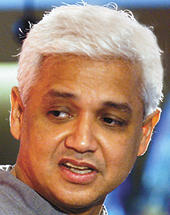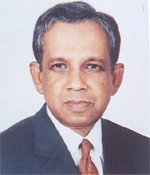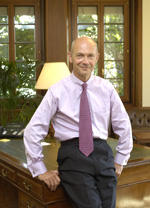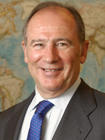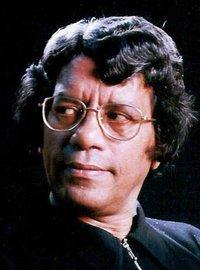
10 Tips for Better Battles...
According to Gottman's research, the way a couple fights is one of the most accurate indicators of whether they'll stay together. Couples who are good at de-escalating arguments with humor and compliments are in good shape. Those who shut each other out or jab each other with sarcasm and insults are headed for trouble. Fortunately, anyone can learn the tools of relationship-friendly fights. Below, our experts weigh in with their advice on how to argue happily ever after:
Surrender the need to be right. We fight because we believe that we're right, and we want the other person to understand that. But Love suggests you ask yourself one important question: Would you rather be right or happy? "Focus on a solution that would be right for everyone, rather than worry about who's right and who's wrong," says Love.
Stay on topic. If you're fighting about the fact that he drank too much at your sister's wedding, then stick to that grievance. This is not a good time to throw in that he was late picking you up last week and never puts his empty bottles in the recycling bin. "Bringing up all the past hurts and done-wrongs will put your partner on the defensive. Sticking to your point will keep your mate from getting confused, impatient, and even angrier," says Lew Moore, PhD, chair of the marriage and family therapy program at Harding University in Searcy, Arkansas.
Focus on your partner's point, rather than yours. Your husband will be more likely to hear your perspective if you let him know that you're genuinely listening to his. So instead of just trying to ram your point of view across, spend at least as much time listening to his. "Ask him questions like, 'Could you say more about that'? Then you're not in the same shoot-and-reload position," says Love.
Give the other person an out, when necessary. Many women get frustrated when their man changes the subject or makes a joke during a heated argument. But Gottman and his team discovered that this was not necessarily a bad thing, as it can be an effective way to break the tension and give each partner some breathing space. By allowing him to change the subject and stop talking about the problem, you're giving him an out -- and that can be helpful if emotions are running high or he is starting to feel defensive or trapped. You can also do this by calling a "time out" when you feel things are getting out of hand, resolving to finish the discussion when each party has cooled off. Of course, you must resume the conversation at a later date.
Pick your battles. Sometimes you just have to accept that he'll always be 15 minutes late and will never learn to see the black stuff that grows between the bathroom tiles. If you're always picking a fight about little things, it will be hard to get him to listen to the big things. "Some people argue for the sake of arguing," says Love. "So you have to ask yourself, 'Is this really important to the relationship? Do I really want to spend my time and energy bickering about this stuff?'"
Avoid personal attacks. So you're mad at your husband for leaving you stranded at his office barbecue. Fine, you have a right. But telling him what an inconsiderate jerk he is probably won't make him correct his behavior for the next office function. Instead, explain how it made you feel when he left you stranded for 45 minutes with that tedious dweeb from HR.
Offer positive feedback. Gottman's research found that happy couples make at least five positive statements or actions for every negative one. Positive feedback means anything from saying, "Good point. I hadn't thought about it that way" to a smile or nod. Love agrees. "Have the maturity and ego-strength to validate your partner's position when he has a good point. Disarming your partner keeps things from escalating," she says.
Watch your body language. Head-shaking, eye rolls, clenched jaws, and derisive snorts can be just as damaging as verbal insults. "Pay attention to how your words are landing," says Tina B. Tessina, PhD, a psychotherapist and author of It Ends with You: Grow Up and Out of Dysfunction (New Page Books, 2003). If your partner looks hurt or has closed body posture -- folded arms, crossed legs, sagging shoulders -- you might be broadcasting more hostility than you think.
Pick the right time and place. If you've had a brutal day at the office, if your precious children have been perfect monsters, or if the outdoor temperature is above 95 degrees, then try to avoid a major conflict with your spouse. "Resist the temptation to try to resolve problems during particular vulnerable times. It's much more effective to say, 'I want to work this out, but I'm not at my best right now. Let's set a time for tomorrow,'" says Daphne Stevens, PhD, a marriage and family therapist based in Macon, Georgia.
Take the high road. Okay, say you've done all this stuff and your partner continues to criticize or stonewall. That's frustrating. It might suggest that you might consider couples counseling, but sinking to his level won't help the situation. "Treat the other person with respect even if you're not getting it in return," says Laura Giles, MSW, who has a private counseling practice in Norfolk, Virginia. After all, when you both start behaving with bitterness and derision, nobody wins.
According to Gottman's research, the way a couple fights is one of the most accurate indicators of whether they'll stay together. Couples who are good at de-escalating arguments with humor and compliments are in good shape. Those who shut each other out or jab each other with sarcasm and insults are headed for trouble. Fortunately, anyone can learn the tools of relationship-friendly fights. Below, our experts weigh in with their advice on how to argue happily ever after:
Surrender the need to be right. We fight because we believe that we're right, and we want the other person to understand that. But Love suggests you ask yourself one important question: Would you rather be right or happy? "Focus on a solution that would be right for everyone, rather than worry about who's right and who's wrong," says Love.
Stay on topic. If you're fighting about the fact that he drank too much at your sister's wedding, then stick to that grievance. This is not a good time to throw in that he was late picking you up last week and never puts his empty bottles in the recycling bin. "Bringing up all the past hurts and done-wrongs will put your partner on the defensive. Sticking to your point will keep your mate from getting confused, impatient, and even angrier," says Lew Moore, PhD, chair of the marriage and family therapy program at Harding University in Searcy, Arkansas.
Focus on your partner's point, rather than yours. Your husband will be more likely to hear your perspective if you let him know that you're genuinely listening to his. So instead of just trying to ram your point of view across, spend at least as much time listening to his. "Ask him questions like, 'Could you say more about that'? Then you're not in the same shoot-and-reload position," says Love.
Give the other person an out, when necessary. Many women get frustrated when their man changes the subject or makes a joke during a heated argument. But Gottman and his team discovered that this was not necessarily a bad thing, as it can be an effective way to break the tension and give each partner some breathing space. By allowing him to change the subject and stop talking about the problem, you're giving him an out -- and that can be helpful if emotions are running high or he is starting to feel defensive or trapped. You can also do this by calling a "time out" when you feel things are getting out of hand, resolving to finish the discussion when each party has cooled off. Of course, you must resume the conversation at a later date.
Pick your battles. Sometimes you just have to accept that he'll always be 15 minutes late and will never learn to see the black stuff that grows between the bathroom tiles. If you're always picking a fight about little things, it will be hard to get him to listen to the big things. "Some people argue for the sake of arguing," says Love. "So you have to ask yourself, 'Is this really important to the relationship? Do I really want to spend my time and energy bickering about this stuff?'"
Avoid personal attacks. So you're mad at your husband for leaving you stranded at his office barbecue. Fine, you have a right. But telling him what an inconsiderate jerk he is probably won't make him correct his behavior for the next office function. Instead, explain how it made you feel when he left you stranded for 45 minutes with that tedious dweeb from HR.
Offer positive feedback. Gottman's research found that happy couples make at least five positive statements or actions for every negative one. Positive feedback means anything from saying, "Good point. I hadn't thought about it that way" to a smile or nod. Love agrees. "Have the maturity and ego-strength to validate your partner's position when he has a good point. Disarming your partner keeps things from escalating," she says.
Watch your body language. Head-shaking, eye rolls, clenched jaws, and derisive snorts can be just as damaging as verbal insults. "Pay attention to how your words are landing," says Tina B. Tessina, PhD, a psychotherapist and author of It Ends with You: Grow Up and Out of Dysfunction (New Page Books, 2003). If your partner looks hurt or has closed body posture -- folded arms, crossed legs, sagging shoulders -- you might be broadcasting more hostility than you think.
Pick the right time and place. If you've had a brutal day at the office, if your precious children have been perfect monsters, or if the outdoor temperature is above 95 degrees, then try to avoid a major conflict with your spouse. "Resist the temptation to try to resolve problems during particular vulnerable times. It's much more effective to say, 'I want to work this out, but I'm not at my best right now. Let's set a time for tomorrow,'" says Daphne Stevens, PhD, a marriage and family therapist based in Macon, Georgia.
Take the high road. Okay, say you've done all this stuff and your partner continues to criticize or stonewall. That's frustrating. It might suggest that you might consider couples counseling, but sinking to his level won't help the situation. "Treat the other person with respect even if you're not getting it in return," says Laura Giles, MSW, who has a private counseling practice in Norfolk, Virginia. After all, when you both start behaving with bitterness and derision, nobody wins.

